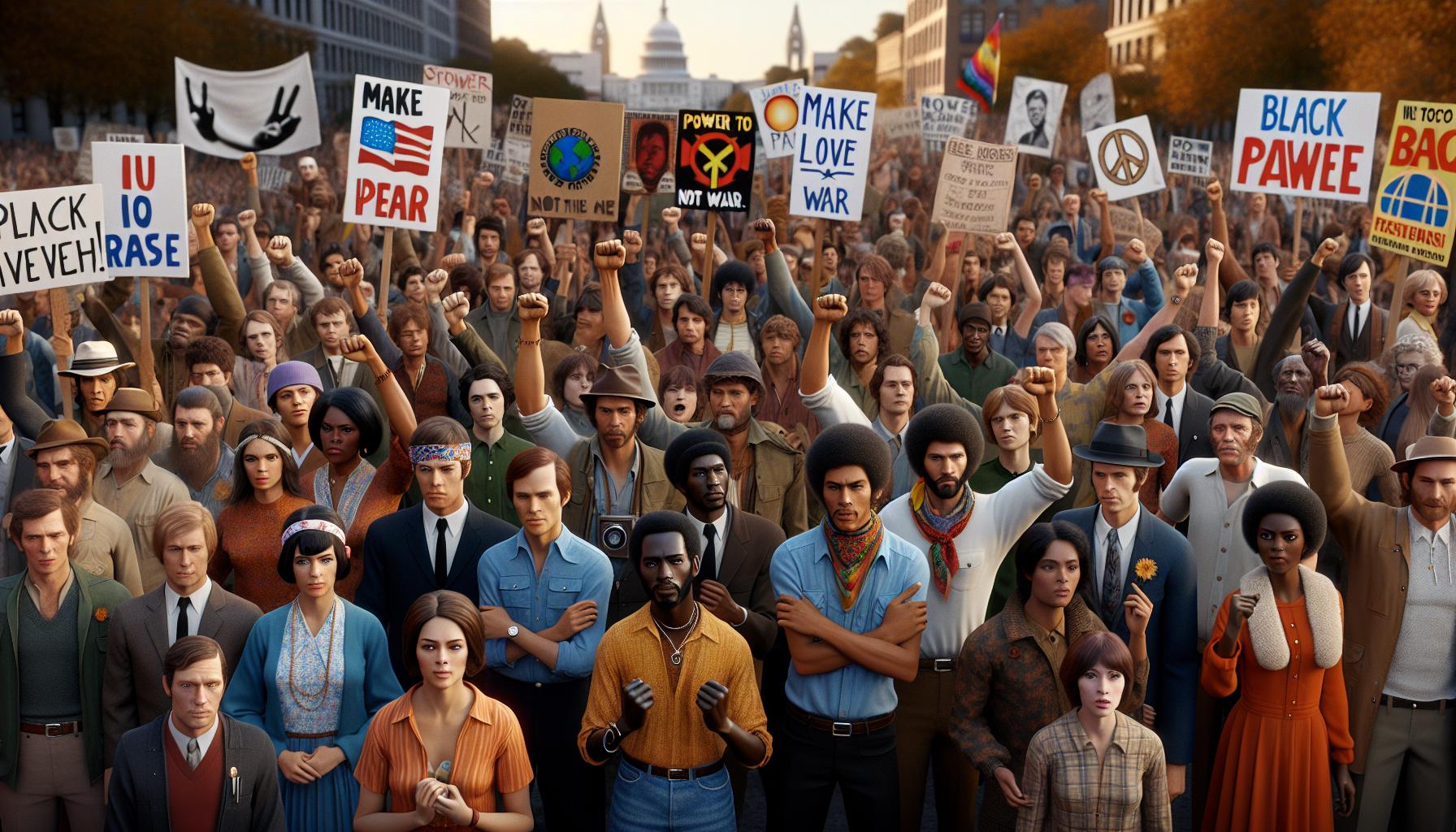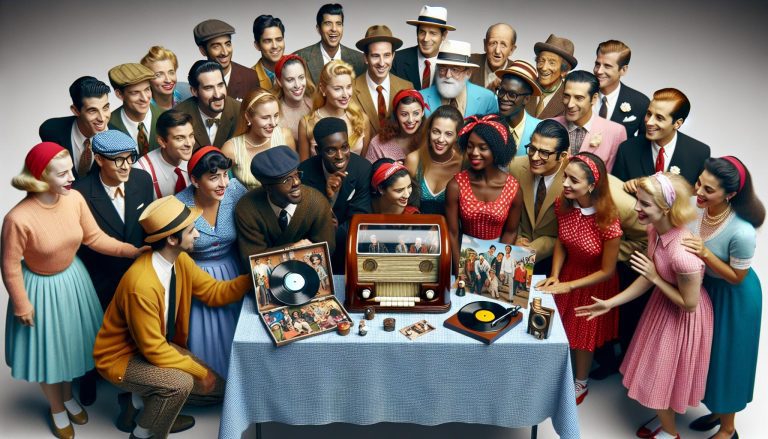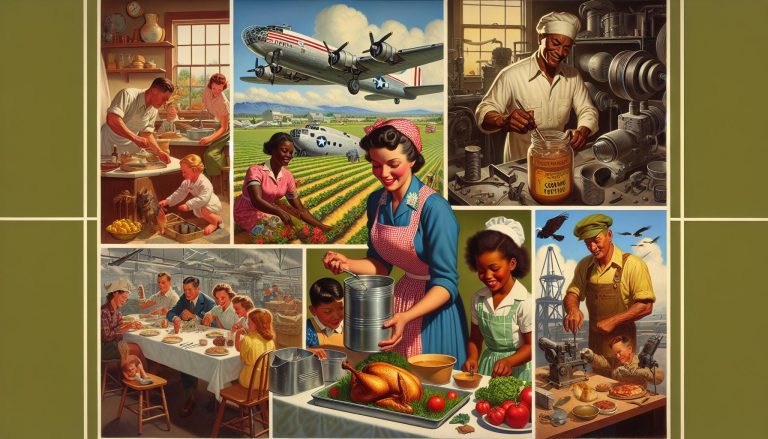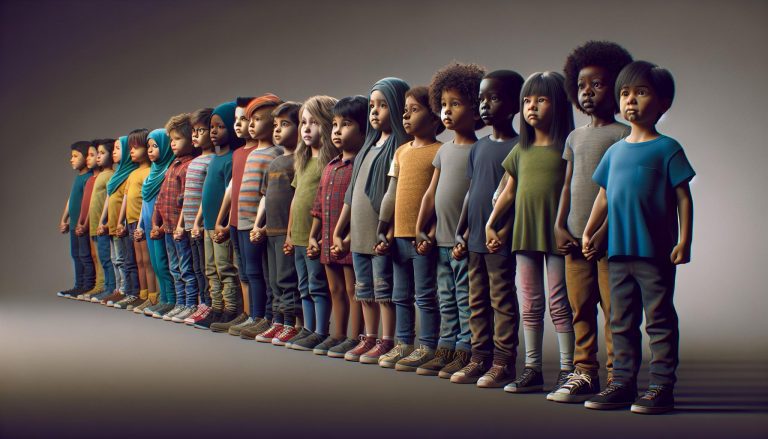Top 1960s Slogans: Voices of Revolution & Change
Dive into the revolutionary spirit of the ’60s with slogans that became the battle cries of a generation demanding change. It was a decade of transformation, where voices on the streets were as powerful as the icons on the screen. You’ve heard them echoed in history books and documentaries, but what made these catchy phrases stick?
From civil rights marches to the first steps on the moon, the slogans of the 1960s encapsulated the era’s thirst for progress and its push against the status quo. You’re about to explore how these rallying calls not only defined a decade but also left an indelible mark on society. Strap in for a trip down memory lane that’s as vibrant and stirring as the ’60s themselves.
The Power of Slogans in the ’60s
Slogans in the ’60s weren’t just catchy phrases; they were the heartbeat of a revolution. They weren’t simply slung around; they carried the weight of a society eager to change gears. You’ll see that each slogan acted as a rallying call, galvanizing the youth and pushing the boundaries of what was socially acceptable.
Look at “Make Love, Not War”. This wasn’t just a cute bumper sticker; it was a resistance to military conflict, advocating peace over violence. Then you had “Power to the People”, which wasn’t about physical strength but about the civil rights movement, calling for empowerment and racial equality. It’s like these few words painted a vivid picture of social and political landscapes.
Consider how these slogans effectively communicated complex ideas. They bridged the gap between diverse groups of people. Whether on the streets or through song lyrics, the slogans of the ’60s broke through the noise and got everyone on the same page. Imagine thousands marching in Washington or Woodstock attendees—very different scenes unified by a common language.
These punchy statements served as an identity marker for many. If “Don’t Trust Anyone Over 30” was your mantra, you were instantly recognized as part of a generational tribe, suspicious of the old guard and ready for fresh perspectives. Slogans like “Question Authority” weren’t just about defiance—they encouraged critical thinking and self-determination.
It’s fascinating how today, after decades, these same slogans resurface, not just as historical references, but also as reminders of the timeless struggle for social progress. They continue to influence modern movements, proving that a few well-chosen words can indeed echo for generations.
Remember, the ’60s taught us that language has power. The right words at the right time can shake the world. They can break barriers and build communities. And who knows, perhaps they’re shaping the future even now, as you read.
Civil Rights and Equality: “Black Power”

In the throes of the 1960s civil rights movement, the phrase “Black Power” took center stage. It was more than a slogan; it was a demand for radical change, echoing the urgency for social and economic equality. The term resonated deeply with African Americans seeking to reshape the narrative around black identity and pride.
Championed by leaders like Stokely Carmichael and the Black Panther Party, “Black Power” encapsulated a profound shift towards self-determination and strength within the black community. This powerful call emphasized the importance of black unity and the establishment of black political and cultural institutions that would serve their interests first and foremost.
Here’s how “Black Power” influenced the nation:
- Empowerment: It motivated African Americans to celebrate their heritage and uplift their communities.
- Solidarity: The phrase symbolized a collective struggle against institutionalized racism and oppression.
Unlike previous pacifist approaches in the civil rights movement, “Black Power” endorsed a more assertive and sometimes militant stance. It suggested taking control of one’s destiny rather than waiting for societal change.
The impact of “Black Power” expanded beyond the borders of the United States. It reached global audiences, inspiring similar movements among oppressed groups who identified with the struggle for self-reliance and empowerment.
“Black Power” was not just about raising fists in a symbol of defiance. It was also about encouraging black-owned businesses, educating the youth about their history and civil rights, and nurturing a sense of community responsibility. As borders between advocacy and activism blurred, people united to build something formidable together—a society where equality wasn’t just a whispered hope but a visible, tangible goal that was actively pursued.
Fast forward to today, and the echoes of “Black Power” are still heard in contemporary movements. They serve as a testament to the unyielding spirit of the 1960s and the ongoing fight for justice and equality. The legacy of this pivotal slogan is undeniable, reminding us all that the path towards empowerment begins with the power of voice and unity.
Anti-war Movement: “Make Love, Not War”

“Make Love, Not War” might just sound like a simple catchphrase, but back in the ’60s, it represented a monumental shift in public consciousness. Gone was the blind support for conflict; in its place, a call for peace and understanding resonated through the streets and campuses across the nation.
You were looking at a slogan, which wasn’t merely words; it was an embodiment of defiance against the Vietnam War. A plea that wafted through the air as protestors marched, demanding an end to the violence and bloodshed. As a testament to its power, this slogan became synonymous with the entire anti-war movement.
What started off as protest signs and chants soon embedded itself into the fabric of American culture. People didn’t just chant “Make Love, Not War”; they lived it. The ethos of the phrase gave rise to the sexual revolution, altering traditional views on love, sex, and marriage.
It was fascinating to see these four words blend counter-cultural activism with the deeply personal realm of love and relationships. They urged the collective conscious to focus on compassion over destruction, on building connections rather than battlegrounds.
Even today, the influence this slogan had on society persists. It’s a thread in the tapestry of contemporary efforts that advocate for peace over aggression, dialogue over discord. The simplicity of the phrase belies its profound impact, urging every successive generation to consider the value of human connection in the shadow of conflict.
When you look at how “Make Love, Not War” spurred people into action, it wasn’t just about protesting a war. It was about shaping a mindset that continues to influence discussions about peace, even in your world today. It taught us that caring for one another should always triumph over conflict and demonstrated the incredible impact powerful words can have.
Feminism and Women’s Rights: “Equal Pay for Equal Work”

The battle for gender equality resonated deeply during the 1960s, giving rise to another potent slogan: “Equal Pay for Equal Work”. As you delve into the era’s movements for change, it’s impossible to overlook the surge in feminism and women’s rights. This rallying cry wasn’t just about fair wages—it was about respect, recognition, and dismantling the status quo.
Women across the United States stood shoulder-to-shoulder, voices united, demanding to be taken seriously in the workplace. This wasn’t a request; it was a demand for the basic right to receive equitable compensation for their contributions. They challenged a system steeped in gender discrimination, laying the groundwork for future legislation and equal opportunity advancements.
Employers had to confront the stark reality that paying a woman less for the same job wasn’t just unfair—it was a violation of her rights. The ripple effect of this slogan was monumental, not just economically but also culturally. Women’s relentless advocacy illuminated societal issues that were often brushed under the rug.
Consider the statistics that surfaced, underscoring the wage disparities:
| Year | Women’s Earnings as Percentage of Men’s |
|---|---|
| 1960 | 60% |
| 1970 | 62% |
These figures became impossible to ignore. They sparked conversations that questioned deep-seated biases and championed the need for a systemic overhaul. Workplace policies began to shift, albeit slowly, with transparency around wages becoming a crucial element in the fight for equality.
“Equal Pay for Equal Work” ultimately extended beyond the paycheck. It symbolized a broader shift towards gender parity in education, political representation, and societal roles. You can see its influence today in ongoing debates and policies surrounding gender equality.
As discussions about fair pay continue, remember that this slogan paved the way for what you now recognize as modern rights and gender norms. It’s not just a piece of history—it’s a living, breathing part of your fight for a fair and just society.
Environmental Activism: “Give Earth a Chance”

In the midst of societal upheavals and the demand for equal rights, the 1960s also gave birth to slogans that highlighted the urgency of environmental activism. “Give Earth a Chance” emerged as a powerful cry, echoing the widespread concern over the deteriorating health of the planet. As you’re considering the tumult of the ’60s, this slogan stands out as a call for the world to wake up and take action against environmental destruction.
The emergence of “Give Earth a Chance” signified a pivotal moment in public awareness. Coupled with the groovy rhythms and peace signs of the era, the environmental movement found its voice. This slogan inspired a generation to look beyond immediate social and political issues and recognize the interconnectedness of all life on Earth. Just like “Black Power” empowered a racial justice movement and “Equal Pay for Equal Work” stoked the fires of gender equality, “Give Earth a Chance” propelled the environmental cause into the public eye.
The impacts were tangible:
- Legislation: Laws that protected the air, water, and endangered species gained momentum.
- Earth Day: April 22 was designated as a day to honor and protect the planet.
- Awareness: It became impossible to ignore the impact of pollution and resource depletion.
This slogan’s influence went beyond picket signs and protest chants. It was a starting point for the green initiatives and sustainability trends you see today. As the roots of “Give Earth a Chance” spread, they shaped the dialogue around corporate practices, consumer habits, and government policies.
Spotlighting the planet’s fragility, the slogan encouraged everyone to take a stand for the environment. It’s easy to draw a line from this rallying cry to the recycling bins in your office or the energy-saving appliances in your home. The advocacy sparked in the ’60s laid the groundwork for ongoing efforts to protect and cherish our natural world.
Conclusion: The Enduring Impact of ’60s Slogans
The ’60s slogans you’ve explored were more than words—they were the voice of change and the echo of a generation’s heartbeat. They united people, sparked movements, and shifted societal norms. Today, you can still feel their influence. They resonate in modern activism, reminding us that the quest for justice and equality is timeless. Whether it’s advocating for peace, celebrating heritage, or demanding fair treatment, the spirit of the ’60s lives on. Those powerful words, “Make Love, Not War,” “Black Power,” “Equal Pay for Equal Work,” and “Give Earth a Chance,” continue to inspire and challenge us to build a better world. Keep their legacy alive by carrying their messages forward in your daily actions and conversations.







